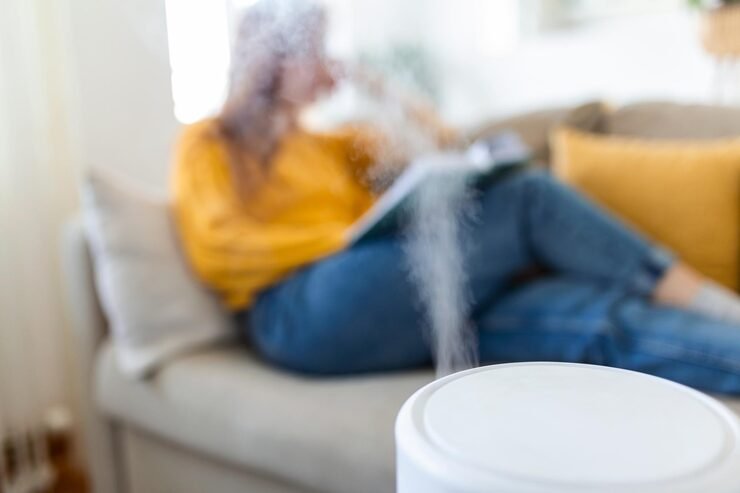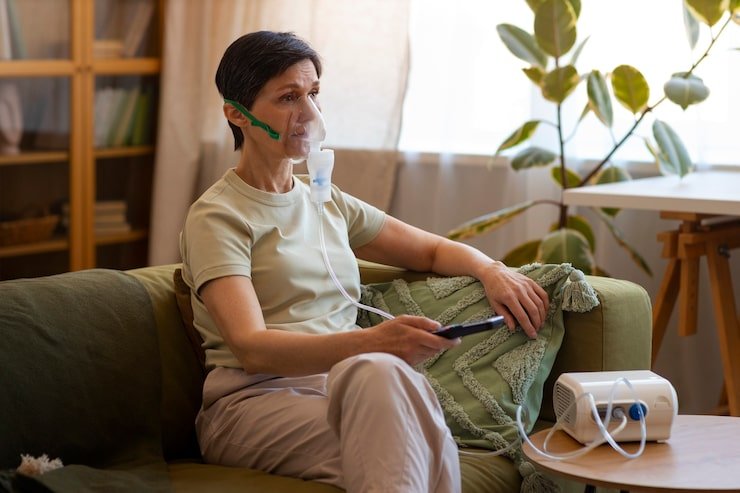5 Signs You Need an Indoor Air Quality Test Immediately
- admin323029
- Blog

Indoor air quality affects your daily health. You breathe thousands of times every day inside your home. If the air is polluted, your body pays the price. Many homeowners in Massachusetts do not realize the risks until symptoms appear. Air Quality Testing gives you clarity and a plan to protect your family.
Why Air Quality Testing Matters
Air Quality Testing measures pollutants like mold, radon, volatile organic compounds (VOCs), and allergens. These pollutants are often invisible. They trigger health issues that disrupt your life. A professional inspection identifies risks and gives you a clear report with solutions. In Massachusetts, where cold winters keep homes sealed, Air Quality Testing is even more critical.
1. Persistent Health Symptoms
If you or your family experience coughing, sneezing, or headaches indoors, your air may be the cause. Symptoms that improve when you leave home are a strong sign. Poor air quality affects sleep, focus, and energy levels. Children and seniors are especially vulnerable. Air Quality Testing confirms whether pollutants are behind these symptoms and helps you act before problems worsen.
2. Strong or Unusual Odors
Unexplained odors often mean hidden problems. A musty smell points to mold. Chemical or paint-like odors may come from VOCs in furniture, flooring, or cleaning products. These pollutants release gases that affect your lungs and long-term health. Professional Air Quality Testing identifies the source so you can fix it. Many Massachusetts basements and attics are prone to moisture, making odors an early warning sign.
3. Recent Renovations or New Materials
If you have renovated, painted, or installed new carpets, you are likely exposed to VOCs. New building materials release chemicals into your indoor air for months. Without ventilation, these pollutants build up. Families often report headaches or breathing issues after renovations. Air Quality Testing provides data so you know when conditions return to safe levels. This is especially relevant in Massachusetts homes where older materials may also contain asbestos or lead.
4. Visible Mold or Water Damage
Mold grows quickly in damp environments. Massachusetts homes with basements, crawl spaces, or poor insulation face higher risks. Even small leaks lead to hidden mold growth. Mold exposure causes respiratory problems, skin irritation, and fatigue. If you see discoloration on walls or ceilings, schedule Air Quality Testing. It detects mold spores in the air that are not always visible to the eye. Early action prevents costly damage and protects your health.
5. Buying or Selling a Home
Air Quality Testing is essential during real estate transactions. Buyers want assurance that the home is safe. Sellers improve trust and value by providing test results. In Massachusetts, where many homes are older, hidden risks like radon and asbestos are common. A professional test adds confidence for both parties and protects your investment.
The Air Quality Testing Process
Inspectors use advanced tools to measure pollutants in multiple rooms. Air samples go to certified labs for analysis. Results are presented in a clear report. The process takes a few hours, with final results available in several days. Massachusetts homeowners benefit from recommendations tailored to local conditions such as cold winters, damp basements, and older building materials.
Practical Improvements After Air Quality Testing
Once you know what is in your air, you can take simple steps:
-
Run dehumidifiers in damp spaces.
-
Install or upgrade ventilation in kitchens and bathrooms.
-
Seal foundation cracks to reduce radon entry.
-
Replace HVAC filters every 2 to 3 months.
-
Choose low-VOC paints and cleaning products.
These steps reduce risks and improve comfort. With clear data, you avoid guessing and take targeted action.
External Resources for Homeowners
For more information, review the Environmental Protection Agency’s guidance on Indoor Air Quality. Massachusetts residents can also find updates and resources through Mass.gov to learn about radon, mold, and health guidelines specific to the state. These are reliable resources to help protect your home.
Take Control of Your Home’s Air
Do not ignore signs of poor air quality. Air Quality Testing provides clarity and protects your family’s health. For Massachusetts homeowners, the risks of mold, radon, and VOCs are real. Schedule a professional test today and take the first step toward a safer home.
FAQs about Air Quality Testing
1. What does Air Quality Testing check for?
Air Quality Testing measures pollutants such as mold spores, VOCs, allergens, radon, and carbon monoxide. These pollutants affect health and comfort in your home.
2. How often should Massachusetts residents schedule Air Quality Testing?
Testing every 2 to 3 years is recommended. In Massachusetts, where basements and sealed homes are common, testing more often is wise if you notice symptoms or water damage.
3. How long does Air Quality Testing take?
Most inspections take a few hours. Lab results are ready within several days. The full process gives you accurate and detailed information.
4. Is Air Quality Testing worth it for new homes?
Yes. New homes often have high VOC levels from paint, flooring, and furniture. In Massachusetts, new construction materials combined with sealed homes make testing important.
5. What happens if Air Quality Testing finds a problem?
You receive a detailed report with solutions. These may include mold remediation, ventilation improvements, or radon mitigation. A professional guides you through the next steps.
Are you worried about the cleanliness of your space?
Let us help you! Cleaning services are our specialty, and we offer a complete range of cleaning and maintenance services. Get a free estimate!


